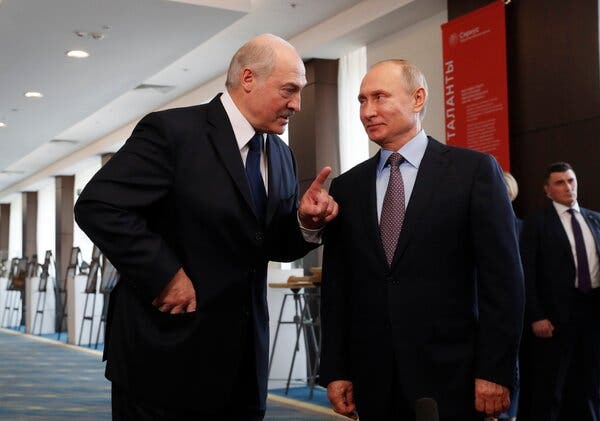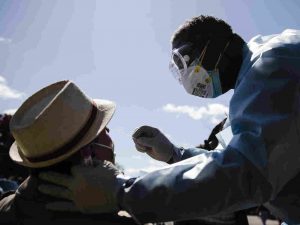MOSCOW — President Vladimir V. Putin of Russia gave an ominous warning on Thursday to protesters in Belarus not to push too hard to topple their country’s embattled president, saying that Russia had formed a special reserve force of security officers to restore order in the event of chaos in its western neighbor.
Mr. Putin, speaking in an interview with Russian state television, said he had ordered the creation of a “certain reserve of law enforcement officers” at the request of Belarus’s authoritarian leader, Aleksandr G. Lukashenko. He said the force had not been deployed as yet, because “we also agreed that it will not be used unless the situation gets out of control.”
Mr. Putin’s remarks laid out for the first time the Kremlin’s view of more than two weeks of protests in Belarus, which he described as “a very close, perhaps the closest country to us.” While saying that Belarusians themselves must decide their own future after a disputed presidential election on Aug. 9, he said: “We are certainly not indifferent to what is happening there.”
Belarus occupies strategically important territory between Russia and the West, and while Mr. Lukashenko’s opponents insist that they have no intention of aligning Belarus with NATO or the European Union at the expense of Russia, the spectacle of mass protests against a rigged election has set nerves on edge in the Kremlin for both international and domestic politics.
“For Putin, Belarus is an existential question,” said Andrei Kortunov, the director general of the Russian International Affairs Council, a research organization close to the Russian government.
Belarus is different from many former Soviet lands, like the Baltic States, that never had much in common with Russia and long ago established functioning democracies, Mr. Kortunov said. Rather, it is so close and similar to Russia that a successful shift to greater political pluralism in Belarus would “make it very difficult to argue that the current model we have in Russia is the only one that can ever exist.”
Russia’s own elections, including a nationwide vote in July on constitutional amendments that allow Mr. Putin to prolong his rule until 2036, have often resembled the disputed Aug. 9 presidential election in which Mr. Lukashenko claimed a landslide victory. Mr. Putin cracked down hard on protesters in Moscow after Russia’s own fraud-tainted elections in 2011, unleashing a round of repression that largely succeeded in demobilizing his opponents for years.


















